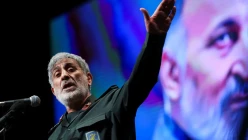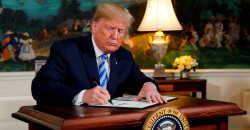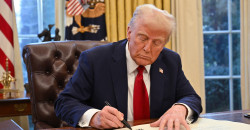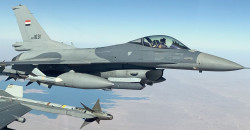Iraq braces for fallout as factions face potential terrorist designation
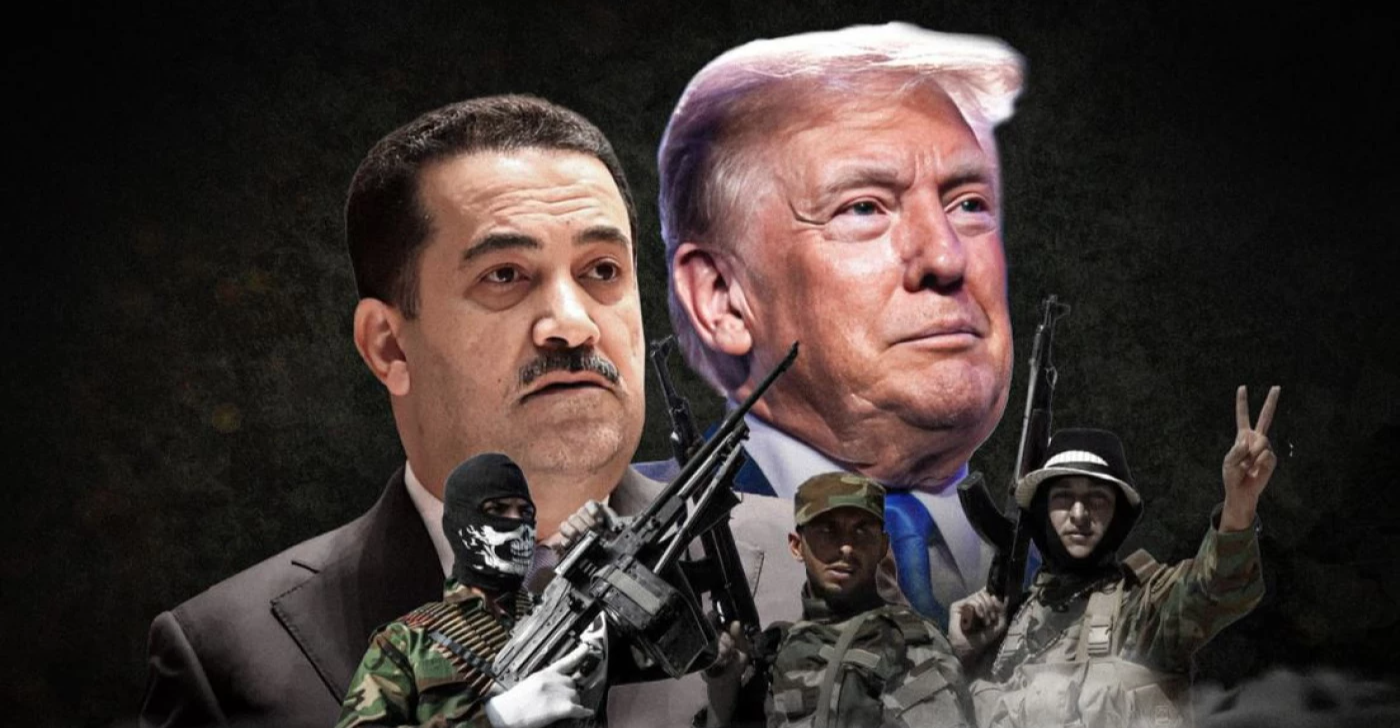
Shafaq News/ Iraq is nearing a new dilemma, marked by a request from several US Congress members to President Donald Trump to designate Iraqi factions as part of the US terrorism list. This crisis is fraught with complications, both in terms of US-Iraqi relations under Trump and the internal situation in Iraq.
The issue of punishing the armed Iraqi factions "has shifted from media leaks and predictions to a reality," in a step that reflects "a significant change," according to Dr. Ihsan Al-Shammari, a professor of strategic and international studies at the University of Baghdad and director of the Political Thinking Center.
In an interview with Shafaq News, Al-Shammari believes that the memorandum from Congress members represents a revival of a project proposed in 2022. Regarding the potential consequences, Al-Shammari predicts that all factions, their financial assets, economic fronts, and media networks, as well as those affiliated with them militarily and politically, will be "completely banned from any dealings."
Al-Shammari rules out the possibility that the Iraqi government would abandon the factions, citing several reasons, the most notable being that "the factions are now the foundation of Prime Minister Mohammed Shia Al-Sudani's government."
When Al-Sudani's government was formed, the factions described it as "the government of resistance and the government of factions." Al-Shammari points out that the government has emphasized that the issue of the factions is an Iraqi decision, and it has shown resistance to the idea of abandoning the armed factions and the Popular Mobilization Forces (PMF).
Even if the government wanted to take such a step, Al-Shammari argues it would be unable to do so, as the Prime Minister “lacks significant political support” in Parliament to back any request to dissolve the PMF or integrate the factions into the security apparatus, "as this is rejected by the Shiite majority controlling Parliament."
He also notes that the Iraqi government "might try to buy time by proposing a merger project." However, he doubts that the United States would accept this, even if the factions were to announce a behavior change, pledging not to participate in what is known as the "resistance" and committing to state policies.
He attributes this to the fact that the current focus, based on the sanctions list submitted to Congress, "includes the activities of these entities and the damage they caused to the United States, including attacks that led to American casualties."
The academic expresses pessimism about finding a solution to the crisis. He believes the Iraqi government lacks the political tools to persuade the US about any plan, and it cannot abandon the factions. Therefore, with the eventual end of Al-Sudani's government, "it may be difficult for an acceptable plan to emerge, even if it is announced by Sudani or the armed factions."
Dr. Salam Adel, director of the Information and Analysis Observatory, holds a different view. He believes the list is illegal, as it lacks legitimacy under US law, and "names are often added or removed based on political whims, sometimes accurately and other times incorrectly."
In an interview with Shafaq News, Adel argues that labeling people defending their country as terrorists while ignoring others who are internationally recognized as terrorists shows that the list is neither legal nor accurate. "How can Hadi al-Amiri, who defends his country, be classified as a terrorist while Abu Mohammad al-Julani, the leader of a state, is granted legitimacy?" Adel attributes this to what he describes as "American capriciousness" in global affairs.
"Iraq has laws on dealing with terrorists, and according to Iraqi law, Hadi al-Amiri is not a terrorist," Adel asserts, dismissing the idea of dissolving the factions or abandoning them as "media nonsense."
He argues that the factions are not a government entity that can be dissolved by a decision from the Cabinet or Parliament but rather a legitimate societal force defending the country from aggression, a fact the US understands well.
Recently, US Congressman Joe Wilson posted on X, "I am honored to send this letter with ten other Congress members to the Secretary of State, requesting that Badr be classified as a terrorist organization along with all other Iranian-backed militias in Iraq," ending his post with "Trump will fix this!"
Dr. Haitham Hadi Naaman, a political science professor at the University of Exeter, believes the primary objective of the United States is "to reach an agreement on the Iranian nuclear file." Naaman suggests that Trump wants to go down in history by achieving two goals: first, striking a deal with Iran, and second, establishing peace with Israel, noting that "achieving these two objectives will impact Iraq's reality."
Naaman predicts that US pressure on Iraq will lead to "the political system having to reassert itself in a certain way," potentially causing political fragmentation within the system or a power struggle between factions.
He envisions two possible scenarios for the political system: either aligning with Iran, which could lead to an economic conflict with the US and potential public unrest or splitting into two factions, one siding with Iran and the other with the US In either case, he is certain that "the political system in Iraq will be affected."

